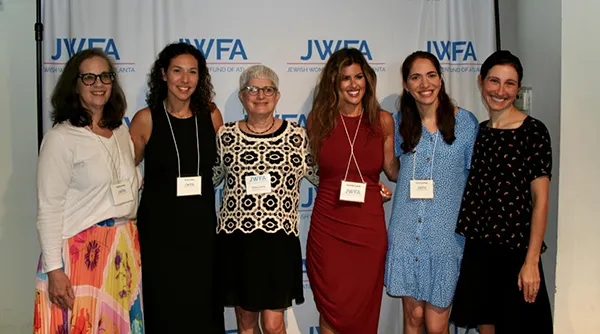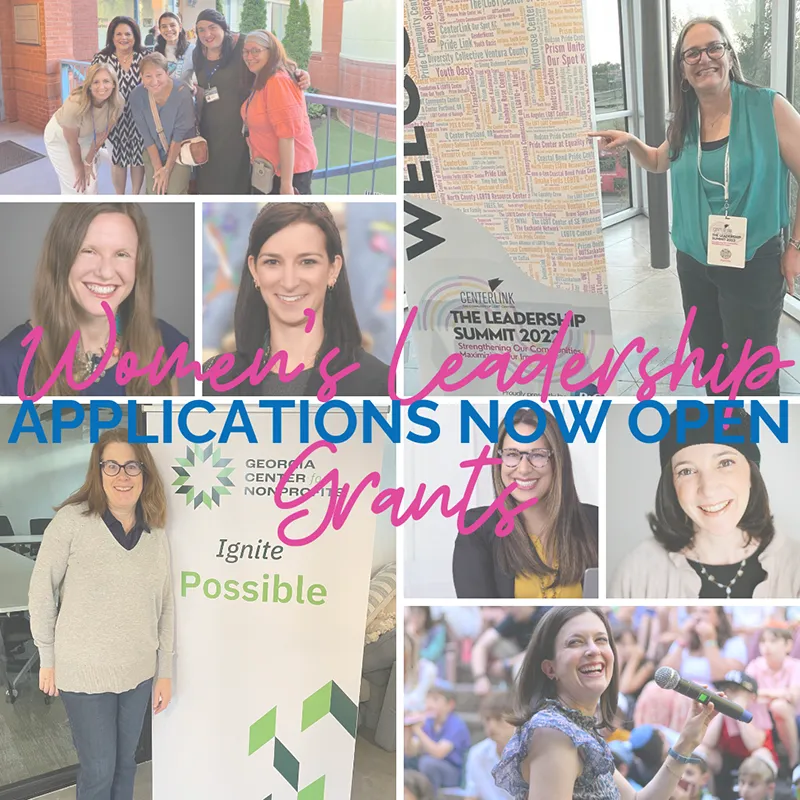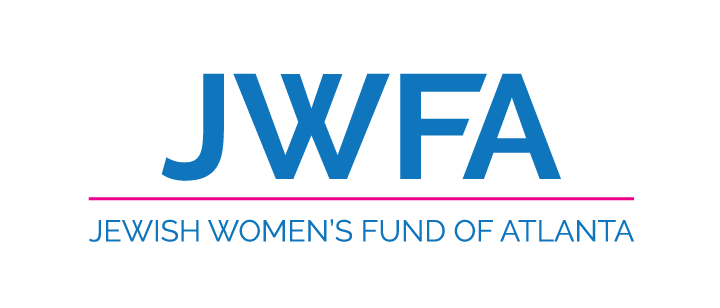Women's Leadership Grants
Driving Social Change by Investing in Jewish Women Leaders in Atlanta
Funded in partnership with the Zalik Foundation, Women's Leadership Grants reflect the value of investing in Atlanta's Jewish women professionals by providing needed opportunities for professional development.
Rabbi Ariel Wolpe, Ma’alot, JWFA Women’s Leadership Grantee
Jenna Shulman, CEO, Jewish Educational Loan Fund, JWFA Grantee Partner

Program Highlights
Women's Leadership Grants are awarded to Jewish women in Atlanta who hold senior-level positions in Jewish communal organizations.
A Unique Initiative
Enhancing women's leadership skills through targeted professional development funding.
Sample Grant Uses
Application Process
- Applications open: January each year
- Grantees notified: May
- Awards distributed: June
Eligibility Criteria
- Jewish women in Atlanta serving in senior-level positions at Atlanta-based Jewish non-profit organizations, day schools and congregations
- Groups of Jewish women working together in senior-level positions at Atlanta-based Jewish non-profit organizations, day schools and congregations
- Women in local or regional offices of major Jewish national organizations

Grant Details
Grant Usage
Grants must be used for professional development, such as continuing education, coaching, workshops, or courses. Applicants can create a professional development package that includes multiple types of services (e.g., attending a training institute and having follow-up coaching sessions).
Funding Details
- Funds should be primarily used within the grant year, with an extended timeline of an additional six months if needed.
- Estimated grant range:
- Individuals: $2,500 - $5,000
- Groups: $5,000 - $7,500
- Grants are awarded only to tax-exempt organizations under section 501c3 of the Internal Revenue Code. Grants are not awarded directly to the Grantees.
Our JWFA WLG Recipients
We are proud of our WLG recipients. They are among the powerful women taking the lead in the Atlanta Jewish community.
2025-2026
Atlanta Jewish Academy: Rebecca Winter
The Breman Museum: Leadership Team
Camp Barney Medintz: Sidra Kennedy
Camp Judaea: Lori Zeligman
Congregation B'nai Torah: Rabbi Elizabeth Breit
Creating Connected Communities: Amy Zeide
Hineni: The Toco Hills Mental Health Initiative: Sheila Jutan
Jewish Fertility Foundation: Kayla Heering
Jewish Kids Groups: Leadership Team
MACoM: Michelle Day
Nashira: Debbie Derby
Temple Sinai: Marisa Kaiser
2024-2025
18Doors Atlanta: Rabbi Malka Packer-Monroe
Adamah ATL: Joanna Kobylivker
Atlanta Jewish Academy: Davida Merlis Graber
Jewish Fertility Foundation: Elana Frank
Prizmah: Debra Shaffer Seeman
Temple Beth Tikvah: Suzanne Hurwitz
Temple Emanu-El: Rabbi Rachael Miller
2023-2024
Atlanta Jewish Academy: Leadership Team
Camp Ramah Darom: Anna Stern Serviansky
Congregation Gesher l’Torah: Rebecca Bendit Gordon
Congregation Or Hadash: Rabbi Lauren Henderson
JELF: Jenna Shulman
JIFLA: Stephanie Gewirtz
Ma’alot: Rabbi Ariel Wolpe
SOJOURN: Rebecca Stapel-Wax
Temima High School: Leadership Team
Anna Serviansky, Camp Ramah Darom, Women's Leadership Grantee
